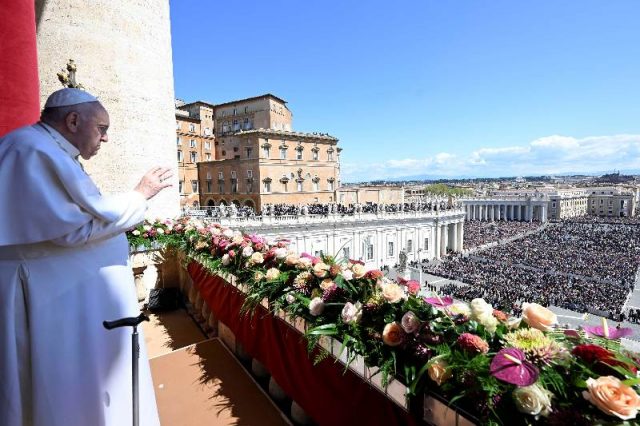
The Catholic Bishops’ Conference of the Philippines (CBCP) has released an advisory endorsing the Vatican document allowing pastoral blessings for couples in same-sex relationships and other “irregular situations.”
In an advisory on Wednesday, Dec. 20, Kalookan Bishop Pablo Virgilio David, CBCP president, said the declaration of the Vatican’s doctrinal office “speaks for itself, and therefore does not require much explanation.”
“For those interested to know and understand what the document itself is saying,” reads David’s advisory linked to Fiducia Supplicans, issued by the Dicastery for the Doctrine of the Faith on Dec. 18 and signed by Cardinal Victor Manuel Fernandez, the prefect for the doctrinal section of the Vatican office.
David pointed to paragraph 41, which stated that the dicastery would not issue more specific regulations on such blessings as the declaration in itself would be “sufficient to guide the prudent and fatherly discernment of ordained ministers in this regard.”
The declaration made a distinction between liturgical rites or ritual blessings on one hand, and pastoral, non-ritual, and spontaneous blessings on the other.
The latter type of blessings may be bestowed upon anyone asking for it, such as during pilgrimages or even on the street when laypersons happen to meet a priest, according to the new Vatican declaration.
David also pointed out that the declaration reaffirmed the Church’s teaching on marriage as a sacrament and indissoluble union entered into by one woman and one man.
He quoted Fernandez’s introduction, which states that “this declaration remains firm on the traditional doctrine of the Church about marriage, not allowing any type of liturgical rite or blessing similar to a liturgical rite that can create confusion.”
“What Cardinal Fernandez considers as unique value of this document is that ‘…it offers a specific and innovative contribution to the pastoral meaning of blessings, permitting a broadening and enrichment of the classical understanding of blessings…,’” the CBCP chief said.
David also quoted five paragraphs from the declaration pertaining to:
• pastoral charity, avoiding being judges and excluding people, and broadening the understanding of blessings (paragraph 13);
• doing away with the need for an “exhaustive moral analysis” of people asking for blessings (paragraph 25);
• bestowing blessings on those who, “recognizing themselves to be destitute and in need of [God’s] help, do not claim a legitimation of their own status, but who beg that all that is true, good, and humanly valid in their lives and their relationships be enriched, healed, and elevated by the presence of the Holy Spirit” (paragraph 31);
• the need for the Church to express closeness “to people in every situation in which they might seek God’s help through a simple blessing,” without the need for a ritual (paragraph 38); and
• a qualification that such blessings “should never be imparted in concurrence with the ceremonies of a civil union, and not even in connection with them. Nor can it be performed with any clothing, gestures, or words that are proper to a wedding” (paragraph 39).
David said the advisory was issued for the “information of the Roman Catholic faithful in the Philippines.”









